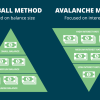Living alone can be an exciting and liberating experience, but it also comes with its own set of financial challenges. From rent and utilities to groceries and entertainment, the cost of living alone can quickly add up, making it essential to budget wisely. Whether you’re moving into your first apartment or looking to gain more financial independence, budgeting for solo living expenses is a crucial step toward achieving your goals.
The main objective of this article is to provide practical tips and insights to help individuals budget effectively for solo living expenses. Whether you’re a young professional starting out on your own or an empty nester looking for a fresh start, this article will provide you with the tools you need to manage your finances and make the most of your solo living experience.

To calculate your monthly income, start by adding up all of your sources of income. This may include your salary if you’re employed full-time, any freelance work or side hustles you do, and any government benefits you may be eligible for. Be sure to include all sources of income, no matter how small they may seem. Once you have a total amount of income for the month, you can begin to allocate it to cover your expenses. If you’re unsure about your monthly income or have irregular sources of income, consider tracking your earnings for a few months to get a better understanding of your average monthly income. This can help you create a more accurate budget plan that takes into account any fluctuations in your income.

List your fixed expenses, including rent or mortgage payments, utility bills, insurance premiums, and loan payments. These expenses are generally predictable, so it’s important to budget for them in advance and ensure that you have enough income to cover them. Include the full amount and the due date for payment to plan ahead and ensure you have enough funds to cover your bills on time. Consider setting up automatic payments to avoid any late fees or missed payments.

Estimate your variable expenses, such as food, entertainment, transportation, and personal care items, by reviewing your past spending habits and considering upcoming events or activities. Allocate your remaining income to cover these expenses based on your needs and financial goals. Adjust your budget as needed to account for changing expenses and income. Estimating your variable expenses can help you create a more realistic budget that helps you stay on track financially.

Prioritize your expenses by deciding which are essential (such as housing, food, utilities, and transportation) and which are discretionary or optional (such as dining out, entertainment, and hobbies). Be realistic about your financial situation and set realistic goals. If you’re struggling to cover your essential expenses, cut back on discretionary spending until you’re in a better financial position. Adjust your budget as needed to accommodate changes in your income or expenses. The key is to create a plan that works for you and helps you achieve your financial goals.

Now that you have a clear understanding of your fixed and variable expenses and have prioritized your spending, it’s time to create a budget plan. To create a budget plan, calculate your monthly income, subtract your fixed expenses, and allocate funds for your variable expenses based on your priorities. Set aside money for savings or unexpected expenses. Be realistic and flexible when creating your budget plan to find a balance between your income and expenses that allows you to meet your financial goals while still enjoying your life. Track your spending regularly, review your budget plan periodically, and make adjustments as needed. Creating a budget plan is an essential step in taking control of your finances and enjoying the benefits of living independently.
Conclusion
In conclusion, living alone can be a fulfilling and rewarding experience, but it also comes with its own set of financial challenges. Budgeting for solo living expenses is crucial for maintaining financial stability and achieving your financial goals. By calculating your income, estimating your fixed and variable expenses, prioritizing your spending, and creating a realistic budget plan, you can take control of your finances and enjoy the benefits of living independently. Remember, creating a budget plan is an ongoing process that requires regular monitoring and adjustments. With a little effort and discipline, you can achieve financial success and enjoy the freedom that comes with living alone.







